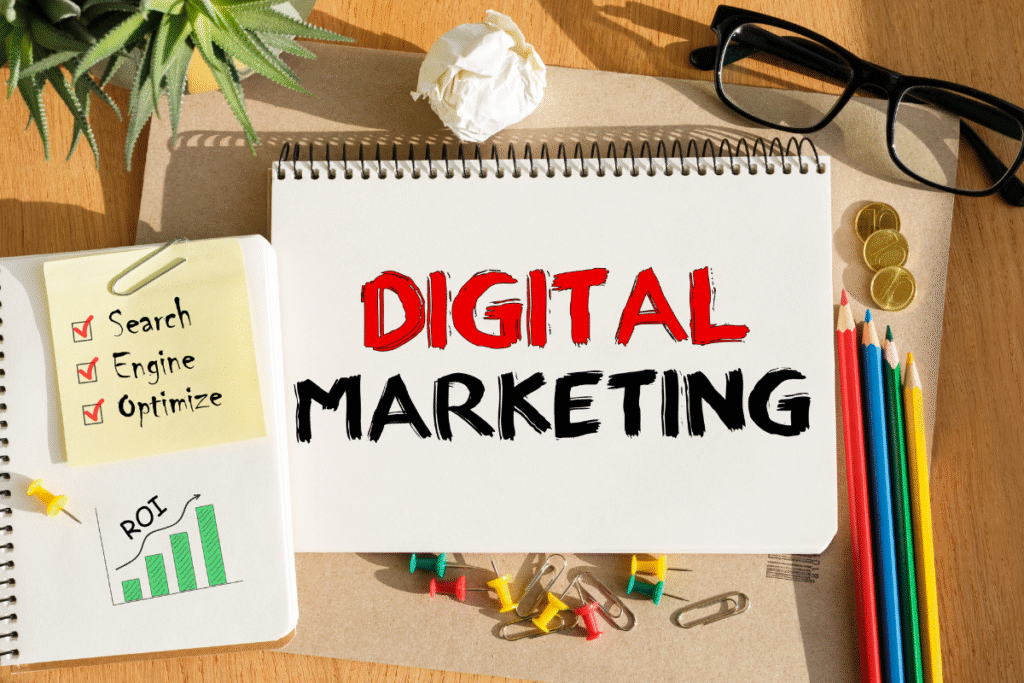On many occasions, small businesses have limitations not only in time and budget but also in expertise of marketing. With the right tools, one can achieve more with less. In 2025, small business owners will need simple, trustworthy, and affordable solutions to remain competitive.
Herein lies what the author refers to as a guide which includes eight tools that a business should have on the list of potential aids to use. We have selected affordable, user-friendly, and impactful tools from CRM systems to content design.
Marketing doesn’t have to be expensive. Small and medium-sized businesses can increase brand awareness without going over budget if they have the correct tools and tactics. 2025 offers a wealth of chances to use affordable marketing tools that produce tangible outcomes, regardless of your level of experience or desire to improve your strategy.
Key Takeaways:
- Smart marketing tools are a perfect match for small businesses as they help save time and money.
- A number of free and low-grade cost options are available for CRM, design, e-mail, and automation.
- Choosing the most appropriate tool not only increases your reach but also enables you to track genuine results.
What benefits can digital marketing tools offer your company?
Basically anything, such as managing social media, creating content, automating customer emails, and assessing the success of all your marketing initiatives.

Additionally, software tools can have a significant impact on the outcomes you achieve and the amount of time you have available when you run your business entirely on your own, as is frequently the case in smaller enterprises.
The secret is to find a tool that is easy to use and doesn’t have a steep learning curve (if you don’t have the time to learn how to use them), isn’t overly complicated or complex, and doesn’t come with exorbitant costs that don’t match your business needs.
Let’s examine a few small business marketing tools that meet the requirements.
Why Tools Matter for Small Business Marketing
1. CRM Software: Never Miss a Lead
Top Tool: HubSpot CRM (Free Plan)
A CRM tool enables you to store contact details, leads, and customer history in one place. HubSpot’s free edition is widely used by small businesses. Also, it permits you to keep track of email openings, create reminders, and stay organized in sales.
Why It Matters:
- Makes it easier to track all leads and ensure follow-up.
- Centralizes customer info.
- Free plans can be used indefinitely.
Alternatives: Zoho CRM, Freshsales (free tier)
Expert Tip: Salesforce claims that CRM systems increase sales by
2. Email Marketing Tools: Stay in Touch
Top Tool: MailerLite (Free for up to 1,000 contacts)
Email marketing helps you stay in touch with clients and drive repeat sales. MailerLite has a free tier that’s great for beginners. It lets you build email lists, send newsletters, and track results.
Why It Matters:
- Emails reach people directly.
- You control your message.
- Great for sales, news, and offers.
Alternatives: Mailchimp, Sender, Brevo (formerly Sendinblue). Email delivers an ROI of $42 for every $1 spent (DMA Report).
3. Social Media Scheduling Tools: Post Ahead
Top Tool: Buffer (Free for 3 channels)
Posting on social media daily takes time. Buffer helps by letting you plan posts ahead. You can schedule Facebook, Instagram, and LinkedIn content all from one place.

Why It Matters:
- Saves time.
- Keeps your content consistent.
- Lets you plan weekly content in one sitting.
Alternatives: Later, Hootsuite (limited free), Metricool
Case Example: A bakery uses Buffer to schedule posts for new menu items, reaching more people without logging in every day.
4. Graphic Design Tools: Make Beautiful Visuals
Top Tool: Canva (Free and Pro plans)
Visuals help you stand out. Canva is an easy-to-use design tool that helps create flyers, logos, social posts, and more. Their free version covers most needs. Posts with images get 2.3x more engagement on Facebook.
Why It Matters:
- Makes your brand look polished.
- Saves money on designers.
- Works for social, print, and email.
Alternatives: Adobe Express (Free), VistaCreate
5. Marketing Automation Tools: Save Time
Top Tool: Systeme.io (Free tier available)
Automation helps your business run while you sleep. Systeme.io lets you send emails, build sales funnels, and sell products—all from one dashboard.
Why It Matters:
- Automates tasks like follow-up emails.
- Saves hours every week.
- Makes your business more efficient.
Alternatives: Mailchimp (Automations), ConvertKit
Case Study: A coach used Systeme.io to create a full sales funnel and grew email signups by 200% in 3 months.
Flowchart Suggestion: Lead magnet > Sign-up > Email sequence > Product offer

6. Analytics Tools: Know What’s Working
Top Tool: Google Analytics 4 (Free)
Analytics tools show what content drives traffic, which pages convert, and where people drop off. Google Analytics 4 is the best free option and works on most websites.
Why It Matters:
- Helps you make better marketing choices.
- Shows where visitors come from.
- Free and powerful.
Alternatives: Matomo (self-hosted), Clicky
7. SEO Tools: Rank Higher on Google
Top Tool: Ubersuggest (Free and paid plans)
SEO (Search Engine Optimization) helps people find you online. Ubersuggest shows keywords, backlinks, and SEO scores. It helps you know what topics to write about and what’s trending. Compare Ubersuggest, Moz, Ahrefs by price and features.
Why It Matters:
- Drives free traffic to your site.
- Shows what your competitors rank for.
- Easy for beginners.
Alternatives: Google Search Console (free), Moz, Ahrefs (limited free tools)
8. Project Management Tools: Stay on Track
Top Tool: Trello (Free plan)
Running campaigns can get messy. Trello helps you plan tasks, assign work, and track deadlines. Use it for content plans, launches, or team management.
Why It Matters:
- Keep your marketing plan organized.
- Easy for teams or solo use.
- Free and flexible.
Alternatives: Asana, ClickUp (free tiers)
Frequently Asked Questions
1. What is the best free CRM for small businesses?
HubSpot CRM is a top free choice with tools for contact tracking, email, and sales pipelines.
2. Can I automate marketing without a big budget?
Yes. Tools like Systeme.io and MailerLite offer free automation features.

3. How do I design my own flyers?
Canva’s free plan lets you create flyers, social posts, and more with drag-and-drop ease.
4. How often should I send marketing emails?
Start with once a week and adjust based on open and click rates.
5. What tools help track website visitors?
Google Analytics 4 is free and offers deep insights into how users behave on your site.
Final Thoughts
With the right tools, small businesses can market smarter, not harder. These eight picks are low-cost or free and help with key tasks: keeping leads organized, reaching out, posting, designing, tracking, automating, and improving.
No need to use them all. Pick what fits your goals. Try one new tool a week and see what clicks.